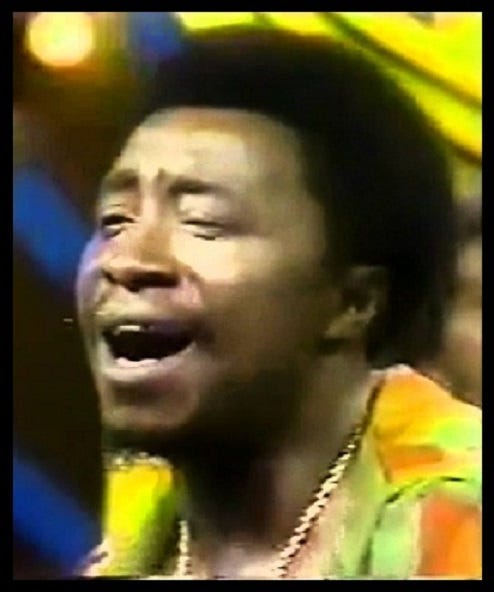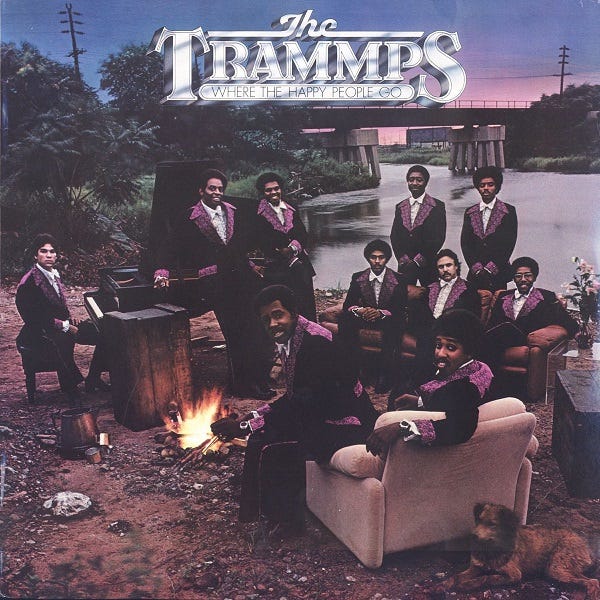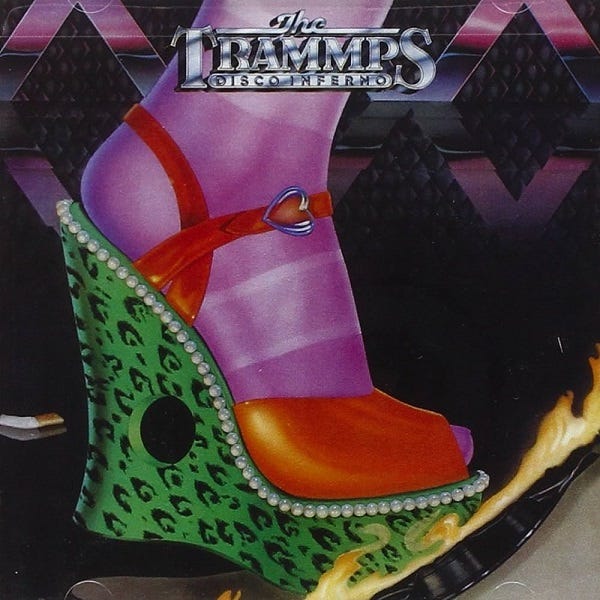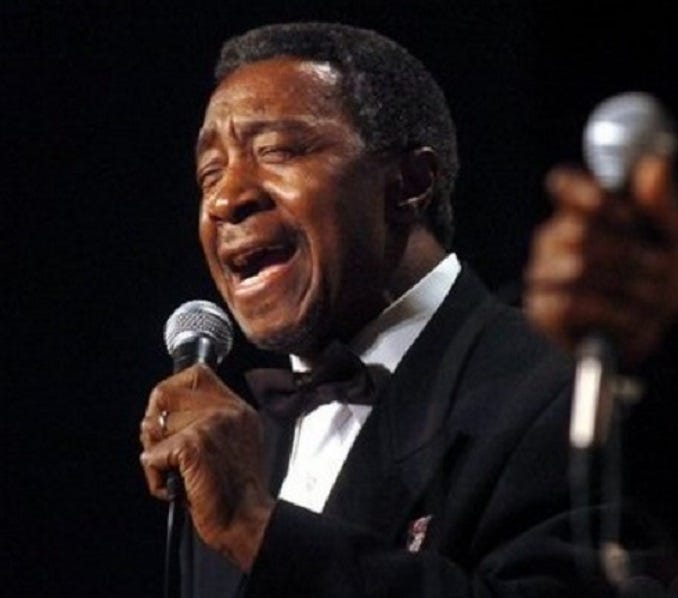Jimmy Ellis (November 15, 1937 – March 8, 2012) – Love Epidemic (1973)
The Trammps lead singer's gospel-trained voice soared on this uplifting message song that became an influential early disco anthem in New York City.
Watch full video on YouTube.
View most updated version of this post on Substack.
Jimmy Ellis was the lead singer of the 1970s soul group the Trammps whose powerful, gospel-influenced voice anchored their upbeat disco sound.
Ellis was born in Rock Hill, South Carolina and got his start singing gospel. After moving to Philadelphia, he joined an R&B group in the mid-sixties called the Volcanos. They had an early hit with “Storm Warning” in 1965, released on Jimmy Bishop’s Arctic Records. One of the group’s original members was drummer Earl Young.
Later renamed the Moods, and then the Trammps, Ellis took over lead vocals by the early 70s and sang on their first single as the Trammps. “Zing! Went the Strings of My Heart” (1972) was produced by Young along with Ronnie Baker and Norman Harris, original core members of Philadelphia International Records’ house band MFSB who had formed their own production team. It hit #17 R&B when released on Buddah Records. The group recorded more material with Baker-Harris-Young for a planned full-length album, but most tracks remained unreleased for several years.
See our earlier posts on Trammps members Earl Young and Ron “Have Mercy” Kersey for more on the group's history.
Philadelphia International Records owners Kenny Gamble and Leon Huff gave Baker-Harris-Young their own imprint, Golden Fleece, and in 1975 they released the Trammps’ self-titled debut album. It contained the uplifting anthem “Love Epidemic,” co-written by Harris and Leroy Green.
First issued as a single in 1973, it went to #75 R&B, but was a highly influential dancefloor hit at early discos like David Mancuso’s Loft and Nicky Siano’s Gallery in New York City.
Also featured on the same LP were masterpieces like the powerful “Where Do We Go From Here,” which was the last song DJ Larry Levan ever played at the Paradise Garage, and the flawless dancefloor anthem “Save A Place,” written by Ronnie Baker.
Trammps landed at #30 on the R&B albums chart. In the wake of its success, Buddah compiled the unreleased material Baker-Harris-Young had earlier produced for the group, and issued it as The Legendary Zing Album (1975).
The next studio album by the Trammps was released on Atlantic Records, produced by Baker-Harris-Young along with several other Philly producers. Its memorable cover art showed the group posing around a campfire on the banks of an urban river, and was shot on Staten Island.
Where The Happy People Go (1976) saw its title track and follow-up single “Disco Party” go to #1 on Billboard’s disco charts back-to-back, the only time in dance music history when one group scored two consecutive #1 hits. Young explained in a 1976 interview that the album was dedicated “to all the disco dancers, people who like to party, get down, that’s what it’s all about. Happy People.”
Arguable their all-around finest LP, the album was a dancefloor explosion from start to finish. Other highlights included its socially conscious opening cut “Soul Searchin’ Time” (another song co-written by Harris and Leroy Green), the upbeat love song “Hooked For Life,” and the powerful anthem “Can We Come Together,” co-written by Allan Felder, T.G. Conway, and Bruce Gray. Where The Happy People Go peaked at #13 R&B and #50 on the Billboard 200.
The Trammps released their next album Disco Inferno on Atlantic in the closing days of America’s Bicentennial year, on December 29, 1976. Its title track (co-written by Leroy Green and Ron “Have Mercy” Kersey) was not a huge hit at the time, reaching #9 R&B and #53 on the Billboard Hot 100, although it did go to #1 on disco charts along with two other dancefloor anthems from the album, “Starvin’” and “Body Contact Contract.”
However, the following year, “Disco Inferno” was immortalized when the producers of Saturday Night Fever (1977) included it on the blockbuster film’s multi-platinum soundtrack, with over 40 million copies sold worldwide.
Ellis continued to perform with the Trammps until retiring in 2008. He battled Alzheimer’s disease and died in a nursing home in his South Carolina hometown in 2012, at age 74.
Happy Heavenly Birthday to the great Jimmy Ellis.
Further info:
“Jimmy Ellis Dies at 74; Lead Singer in Dance Band Trammps,” obituary, The New York Times, March 8, 2012.
“Jimmy Ellis: Singer with the Trammps, of 'Disco Inferno' fame,” obituary, The Independent (UK), March 9, 2012.
“Remembering Jimmy Ellis: Burned Hot Before The Inferno,” by Mark Anthony Neal, The New Black Magazine, March 27, 2012.
#soul #funk #disco #Trammps #JimmyEllis










